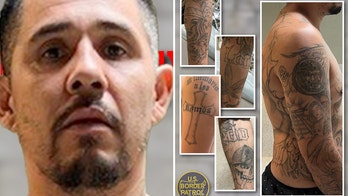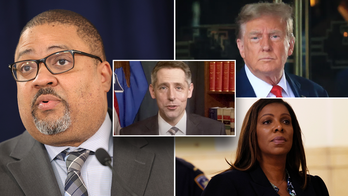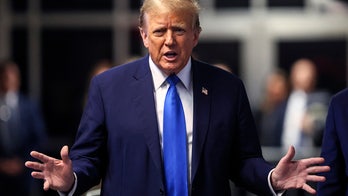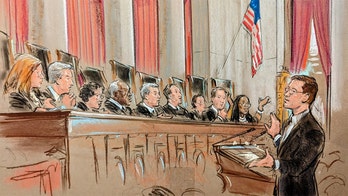I’m starting to get the impression that Donald Trump and Ted Cruz don’t like each other very much.
The two of them are going nuclear.
I mean that literally.
"We’re liable to wake up one morning and Donald, if he were president, would have nuked Denmark,” Cruz said the other day.
Trump, meanwhile, says that what Cruz did in Iowa was “disgusting,” that it was a “disgrace,” that it was a “fraud,” and that his victory in the caucuses should be thrown out.
Remember when these guys had only nice things to say about each other? That seems like years ago.
With just a few days before the New Hampshire primary, the entire Republican race has turned ugly. Any substantive discussion of issues is being utterly drowned out. The campaign is now a street brawl, with battered candidates trying to bruise each other.
That’s not entirely a bad thing, as I’ll explain in a moment.
Trump had a perfectly legitimate beef with the press for portraying his second-place Iowa finish as a calamity and Marco Rubio’s third-place showing as fabulous. (Yes, I know it’s because Trump underperformed the final polls and Rubio overperformed, but what if those polls were wrong? And the complicated caucuses are notoriously difficult to poll because of turnout.)
But then Trump, after a gracious concession speech, went on a Twitter rant about Iowa that has ratcheted things up. I fail to understand what he gets out of this, since there isn’t going to be an Iowa do-over and he headed into New Hampshire with a huge lead in the less-than-perfect polls.
Of course, Trump knows a thing or two about dominating media coverage with strong comments. But Cruz has gotten his share of attention by hitting back at The Donald.
Trump’s first beef is that the Cruz campaign sent out an official-looking “voter-shaming” mailer to try to guilt-trip supporters into showing up at the caucuses. What’s gotten far less attention is that Rubio’s campaign sent out a milder version of the same mailer.
The mailer feels like below-the-belt politics, but it can’t have influenced enough voters to change the Iowa outcome.
The second charge in the indictment is that the Cruz camp spread false rumors that Ben Carson was dropping out of the race.
This began with tweets from CNN reporter Chris Moody: “Carson won't go to NH/SC, but instead will head home to Florida for some R&R. He'll be in DC Thursday for the National Prayer Breakfast.”
And that was accurate. Since it’s highly unusual for a candidate to take a break between Iowa and New Hampshire, that did carry the implication that Carson might be stepping aside.
Unfortunately, Dana Bash, one of CNN’s best reporters, was confusing on the air: “We should say that our Chris Moody is breaking this news that Ben Carson is going to go back to Florida to his home, regardless of how he does tonight here in Iowa. He’s going to go there for several days, and then afterwards he’s not going to go to South Carolina; he’s not going to go to New Hampshire. He’s going to come to Washington D.C. and he’s going to do that because the national prayer breakfast is on Thursday.”
Moody immediately clarified on Twitter: “Ben Carson's campaign tells me he plans to stay in the race beyond Iowa no matter what the results are tonight.”
The Cruz camp then sent a notice to its ground troops for use at the caucuses: “CNN is reporting that Ben Carson will stop campaigning after Iowa. Make sure to tell all of your peers at the caucus supporting Carson that they should coalesce around the true conservative who will be in the race for the long haul: Ted Cruz."
The Texas senator has since apologized to Carson.
Trump now says Cruz “stole” the election
Cruz responds that his rival is engaging in a “Trumper tantrum,” that he’s “losing it,” and that Americans shouldn’t want the billionaire’s fingers on the button.
And when you get tired of these two guys pounding each other, there’s Chris Christie calling Rubio “the boy in the bubble” and making other disparaging remarks.
All of this is catnip to a press corps that loves conflict. But there’s a silver lining.
This is a chance for voters to see how candidates react to pressure and how they handle attacks, fair and otherwise. It’s also a chance to watch how candidates cope with setbacks and whether they can pick themselves off the canvas.
In short, it’s a character test.
The high-intensity atmosphere of a campaign doesn’t begin to approach the pressures of the presidency, but it provides an approximate glimpse. And after New Hampshire votes, we’ll have a better idea of who passes that test.





